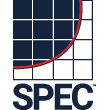SPEC offers HPG benchmarks free of charge to qualified non-profit organizations worldwide
The new program is expected to spark increased use of SPEC/HPG benchmarks for high-performance computing (HPC) research
GAINESVILLE, Va., March 1, 2018 - The Standard Performance Evaluation Corp. (SPEC) announced today that it will immediately offer benchmarks from its High-Performance Group (SPEC/HPG) at no charge to non-profit organizations worldwide. The announcement is expected to spur increased use of SPEC/HPG benchmarks in the academic and research communities.
Providing better tools
"Universities and research organizations are typically financially limited, reducing the choices they may have for obtaining high-quality tools for research that is potentially important to technology-based businesses worldwide," says Robert Henschel, SPEC/HPG chair. "Offering SPEC/HPG benchmarks at no charge will give researchers access to better tools for their vital work in improving HPC performance and energy efficiency."
Effective immediately, three SPEC/HPG benchmarks will be available at no charge to qualified non-profit organizations:
- The SPEC MPI benchmark suite for measuring performance of compute-intensive applications using the Message-Passing Interface (MPI) across a wide range of cluster and SMP hardware.
- The SPEC OMP benchmark suite for measuring performance and energy efficiency using applications based on the OpenMP standard for shared-memory parallel processing.
- The SPEC ACCEL benchmark suite for measuring hardware-accelerated performance for highly parallel compute-intensive applications using the OpenCL, OpenACC and OpenMP standards.
"This is a very exciting development that will be welcomed by the HPC research and academic communities worldwide," says Torsten Hoefler, who leads the Scalable Parallel Computing Laboratory (SPCL) at ETH Zurich and co-chairs the MPI Forum's collective operations working group. "SPEC/HPG benchmarks provide a framework that helps to ensure the rigor, reproducibility and application-based versatility that are critical to sound research efforts."
Greater exchange, more members
The SPEC/HPG committee plans to offer tutorials and online training that will help lower the burden of getting started within the SPEC ecosystem. Henschel believes that access to these resources will widen the avenues of information exchange between SPEC/HPG and the HPC communities it serves.
"We expect to receive a lot of important input that will help us continually improve current benchmarks and develop new performance evaluation tools to meet future needs," says Henschel. "We also expect increased SPEC/HPG membership as a result of more organizations recognizing the value of our benchmarks and wanting to have greater involvement in the development process and early access to emerging benchmarks."
Current SPEC/HPG members include AMD, HPE, IBM, Intel, Lenovo, Nvidia and Oracle. SPEC/HPG Associates include Argonne National Laboratory; Helmholtz-Zentrum Dresden-Rossendorf; Indiana University; Oak Ridge National Laboratory; RWTH Aachen University; Technische Universitat Dresden, ZIH; and University of Delaware.
For more information
Visit the SPEC website for more information on SPEC/HPG benchmarks and to access downloads.
About SPEC
In its 30th year, SPEC is a non-profit organization that establishes, maintains and endorses standardized benchmarks and tools to evaluate performance and energy consumption for the newest generation of computing systems. Its membership comprises more than 120 leading computer hardware and software vendors, educational institutions, research organizations, and government agencies worldwide.
- Media contact:
-
Bob Cramblitt
Cramblitt & Company
919-481-4599
info@cramco.com
- Company, product and service names mentioned herein may be the trademarks of
their respective owners.




